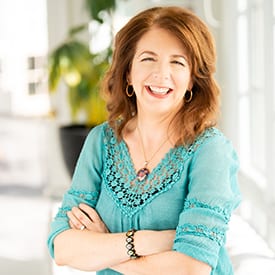Community News
Hope Recovery Resources: Interview with Beth Fisher Sanders
Established almost thirty years ago, Hope Recovery Resources is a continuing care community that includes recovery residences in addition to recovery support services, all designed to bridge the gap from early recovery to independent living, addressing most behavioral health conditions.
It promotes and supports recovery through a full spectrum of continuing care residences, services and support. Its residential services include homes in Charlotte, NC, and Atlanta, GA, where people stay from three months to several years, offering a place of refuge, safety, support and healing. The organization also offers non-residential services to the individual through coaching, monitoring, substance use assessment, and help with navigating community resources to enable a continuum of care. The organization’s services have expanded to include life skill support for most behavioral health issues, including those with co-occurring conditions, mood and personality disorders, and eating disorders.
 Founder and CEO Beth Fisher Sanders has worked in behavioral health and holds licensure in social work and addictions, and is certified in addictions counseling, supervision, and medication assistant treatment. She also helped form the National Alliance for Recovery Residences and is its Standards Chair. Beth has developed content for several of the I-STARR operator and provider training webinars, including sessions on recovery housing operations, policies, law and ethics.
Founder and CEO Beth Fisher Sanders has worked in behavioral health and holds licensure in social work and addictions, and is certified in addictions counseling, supervision, and medication assistant treatment. She also helped form the National Alliance for Recovery Residences and is its Standards Chair. Beth has developed content for several of the I-STARR operator and provider training webinars, including sessions on recovery housing operations, policies, law and ethics.
She began Hope Recovery Resources to serve the recovery community, which is her life’s work, passion and calling.
To learn more, we sat down with Beth to ask her about her work.
What do you see as the current needs of people in recovery that are not being adequately addressed?
Beth Fisher Sanders: People fall through the cracks when there are siloed services, and unfortunately that often remains the case today. While there are indications of systemic change and more intention in bridging the gap between substance use and mental health issues, there is still a divide between, with the goal of healing and recovery becoming blurred or lost. Approaching recovery from a whole health, community-based perspective is key to facilitating sustained, empowered and unfragmented process for those we serve.
What are some current or upcoming challenges that recovery homes are facing?
Beth Fisher Sanders: Funding is the biggest challenge for any recovery residence. There is little to no financial margin in operating a quality recovery residence, and the pathway to sustainability is in outside funding sources. Those are still quite limited. It is encouraging to see more states embracing and funding standards-based recovery housing as part of a supported continuum of care. Those states are creating a template for others to follow and advocate for. The addition of the Recovery Support Services chapter to the newly released 4th edition ASAM-PPC manual also positions recovery residences for advocacy for insurance and grant funding streams. This is encouraging as it legitimizes the social (experiential) model that is foundational to all standards-based recovery housing. – recovery residences do not have to be something they are not – clinical/medical – to advocate for funding.
If you could wave your magic wand and grant one change in how we see or speak about recovery or how better to support folks in recovery, what would you wish for?
Beth Fisher Sanders: I would wish for everyone support and advocate for community based, social model recovery programs. Pattern interruption often happens in short term clinical facilities, but recovery is most often found over time within the context of community. We cannot recover in a vacuum! Connection and community is everything to recovery – our understanding and advocacy for recovery is vital to continuing these programs in the continuum of care.
Thank you so much, Beth!
Learn more about Hope Recovery Resources.
Subscribe to Our Newsletter
Learn about the project, stay updated, and keep in touch. Sign up now.
